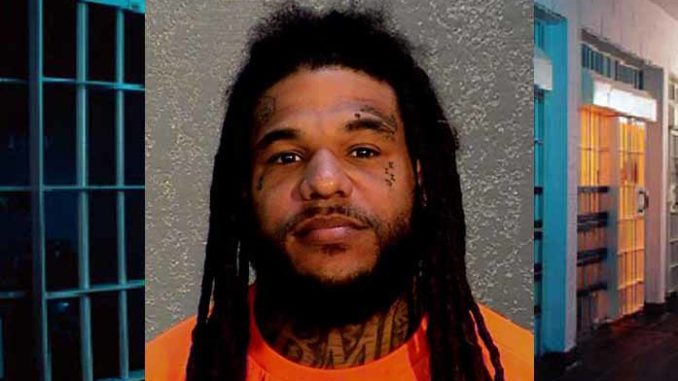
A Sierra Vista man serving nearly 40 years in prison for multiple convictions related to methamphetamine sales will have an opportunity in October to argue in support of a new trial thanks to the efforts of a Phoenix-based attorney.
Usef Latrice Simmons was sentenced in 2014 to 39 years in prison as a category three repetitive offender after being found guilty by a Cochise County jury of committing 11 drug offenses. Then in 2015, five of the jury’s verdicts were tossed out by the Arizona Court of Appeals due to insufficient evidence to support the charges, which involved text messages about drug sales.
Read more from Terri Jo Neff >>
Simmons, now 33, was resentenced on the six remaining felonies to the same 39-year prison term. The resentencing was affirmed by the court of appeals in October 2017.
And that, according to Davina Godley, should have never happened, as Simmons should have been given a new trial on those six counts.
Godley runs a one-woman law firm in Phoenix at which she specializes in criminal defense. Her legal arguments about why Simmons is entitled to a new trial recently convinced Judge Laura Cardinal of the Cochise County Superior Court to order an Oct. 12 evidentiary hearing on the matter.
One of the main issues, Godley argued, is that the jurors heard testimony related to the five dismissed charges which may have been inadmissible in a trial about only the other six counts. But none of Simmons’ court-appointed attorneys ever challenged the other six convictions.
“Failure to pursue this prejudicial impact on the jurors and not request a new trial was error,” Godley argued in a November 2020 petition for post-conviction relief. “Further, appellate counsel should have moved for a new trial after the decision by the court of appeals in 2015.”
Such an error is the basis for Simmons’ claim of ineffective assistance of counsel, which would require Cardinal to find the representation by one or more of the previous attorneys “fell below prevailing professional norms.” Even then, the judge must also find there is “a reasonable probability” the outcome at trial would have been different.
At the Oct. 12 hearing, Godley will also be allowed to argue a new trial is warranted on the basis of newly discovered material facts related to Simmons’ trial testimony that his cellphone was either lost or stolen around the same time investigators were communicating with his phone number to arrange meth sales.
The jury never heard any testimony supporting Simmons’ claim, but records exist to show he worked with a T-Mobile employee at that time to activate a different phone, according to Godley.
Deputy County Attorney Dan Akers is assigned to Simmons’ case but was not the trial prosecutor. He strenuously argued against an evidentiary hearing which could lead to an order by Cardinal for a new trial.
“The majority of the charges against the Defendant allege that he possessed drugs for sale,” Akers argued, adding that evidence of drug sale discussions in the text messages “would have been admitted at trial” even if criminal charges connected to the communications themselves had not been pursued.
Akers also argued that even if Simmons’ current attorney is now prepared to present sworn testimony from the T-Mobile employee, that does not make it newly discovered facts, as Simmons’ trial attorney had the chance to call the witness in 2014.
“Accordingly, because the decision as to what witness should be called to testify on the defendant’s behalf is a tactical, strategic decision, this decision will not support an effectiveness claim so long as (it) could have had some reasoned basis,” Akers argued.
The prosecutor even opined it “is possible that trial counsel did not wish to suborn perjury, or the attorney may have determined testimony from the T-Mobile employee “would negatively affect the outcome of the trial.”
Cardinal is expected to hear sworn testimony from a handful of witnesses during the Oct. 12 hearing. Simmons will not be in the courtroom for the hearing but will attend either telephonically or via livestream.
The Arizona Department of Corrections shows Simmons must serve 85 percent of his sentences before being eligible for release from custody. His earliest release date is listed as December 2048.
